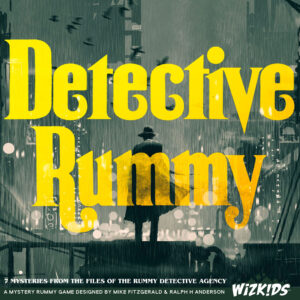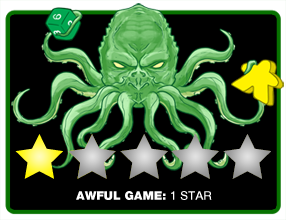 The suspect photos were taped haphazardly to the wall, their eyes watching me uncap my bottle of whiskey, their condemnation truly my own. I stubbed out the cigarette, took a swig, and stumbled to my ramshackle desk. Times have been tough at the Rummy Detective Agency. All these suspects, all these crimes, yet no leads and lots of alibis. Maybe I’ll just rest here for a while. Think things through. Consider if this is truly the line of work for me. And finish this bottle before one of us expires.
The suspect photos were taped haphazardly to the wall, their eyes watching me uncap my bottle of whiskey, their condemnation truly my own. I stubbed out the cigarette, took a swig, and stumbled to my ramshackle desk. Times have been tough at the Rummy Detective Agency. All these suspects, all these crimes, yet no leads and lots of alibis. Maybe I’ll just rest here for a while. Think things through. Consider if this is truly the line of work for me. And finish this bottle before one of us expires.
Detective Rummy is a card game with area control and story-telling elements that features seven cases, a campaign mode, as well as standalone options. It plays two to four players in approximately an hour. It was designed by Mike Fitzgerald and Ralph H. Anderson and published by WizKids.
Gameplay Overview:
After choosing to play either a campaign (recommended for first timers) or a case, players select a detective board that features a signature skill to start with. Players are dealt ten cards and the central play area is determined based on which case is selected. Each game is called a Hand in keeping with the rummy card mechanism that powers the game’s engine.

Typically, the central area is populated with locations that players can visit and multiple suspects that can be investigated (or you can pin evidence on). On a turn, players ready any items acquired the previous round and then choose to either Recuperate or do Detective Work. Recuperate is the way to heal and draw more cards into your hand, whereas Detective Work is the main action.
There are four items that can be gained: Bulletproof Vest, Gun, Magnifying Glass, or Fingerprint Kit. Each of these provides powerful one-time bonuses during play. Players can gain skills to add to their inherent starting skill that helps power their evidence cards. Skills can be “wounded” or made inactive during a dice roll based on a danger level that increases over time.
During Detective Work, players can visit a location, perform actions, and manipulate their hand of cards. Visiting a location allows players to gain new items, new cards, and on occasion, game-changing cards that provide unique benefits. At the end of the turn, if players have emptied their hand, they receive a bonus to add a detective token on a suspect as well as draw extra cards.

Performing Actions is the meat of Detective Rummy. Players can heal one skill, investigate using their evidence cards, or use an item. The rummy-style card system comes into play during an investigation. There are two types of cards: Circumstantial and Fingerprint evidence. Circumstantial cards feature two skill icons. These cards can be combined into groupings of three (similar to rummy) to gain new skills and place detective tokens for area control. Fingerprint cards require certain skills to be ready and have three different power levels that provide token options and card draw.
The way to score the most points (called fame) is to not only hold the majority over certain suspects, but also hold a majority over the suspect with the most detective tokens. There are goal tiles called assignments that provide fame as well as some game-changer cards. Cases may also provide adjustments to these scoring rules.
For campaign mode, certain aspects of play carry forward to each case. A bad blood token on a suspect causes a player to roll for wounds and may turn up again in the future. Each case has a different general motivation and a specific set of game-changer cards that feature story elements for the specific narrative. These cases are loosely connected to provide a framework for player actions.

Game Experience:
Things are not looking good for our detective agency. Detective Rummy invites you in with its engaging art style and promise of narrative and campaign but ends up feeling underwhelming in almost all aspects. Even its release was hampered by a rulebook that needed updates and a player aid that didn’t provide a great turn flow. Thankfully WizKids has provided errata to most production copies, but it’s still a rough start for a game that needed more testing.

Let’s start with the central mechanism: match three card icons. Playing cards that match sets a token on a suspect is truly the main action in this game. It’s made more complex by including a skills system that must be adhered to with the fingerprint cards, plus being mindful of your own base skill for added benefit, but the skill system isn’t that fun. Add to this the wound system that uses dice to punish certain players for their skill choices.
As such, luck runs rampant here. From card draw to the dice rolls to the game-changer cards. The suspects area control also is driven by the way the cards appear. Add to this the fact that you’re not really trying to narrow down who the proper suspect is, but instead are just creating a guilty party based on your actions, there’s not much agency here for players. Everything feels very on-rails regarding how your turn must play out.

The narrative is also almost non-existent. There’s some minor story direction on the game-changing cards, but the case notes (endgame summaries) are one sentence and do nothing to add to the atmosphere of working as a detective. Our group collectively groaned upon learning how much time we were putting into the case only to receive nothing at the end. It’s baffling how little thought went into providing a more immersive experience. It’s almost as if this needed to be a cooperative design to make players work together toward a solution.
I could go on and on about the miscues and suggestions to make this a more enjoyable experience. I do want to point out a couple of elements that did work for us. The first is the one bit of agency that players do have—choosing which items to take on. While the activation of items is fiddly and convolutes play, it does add a wrinkle and benefit during your turn. The other is the lawyer tiles. These come into play via game-changer cards, require players to match an additional icon related to the lawyer, and provide a little pressure to the area control.
Final Thoughts:
I’m closing the case on Detective Rummy. It lacks player agency, has little to no narrative drive, and is a lot of filler on top of a classic card game. It almost feels like an idea that was conjured in another realm entirely and then the detective elements were pasted onto the design. It’s overproduced (the large player boards are horribly arranged too) and underdeveloped. Not a great combination, especially at its price point.
Final Score: 1 star – Detective Rummy is a puzzling mystery with confusing rules and lack of immersion.
 Hits:
Hits:
• Card and board artwork
• Lawyer tiles
Misses:
• Rules and player aid issues
• Disconnected theme
• On-rails gameplay
• Subpar campaign elements






















